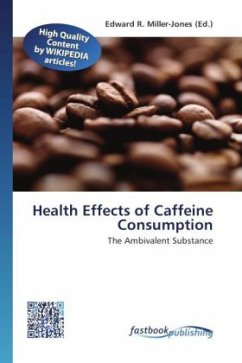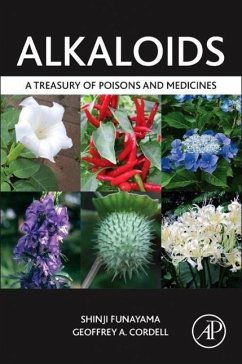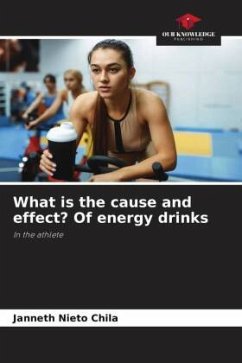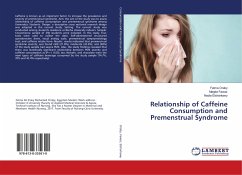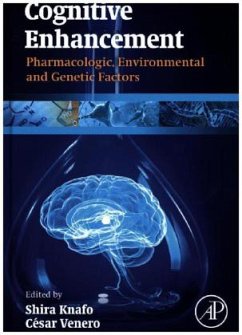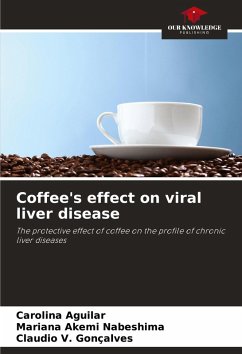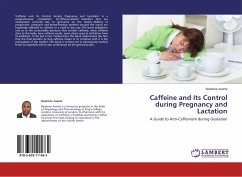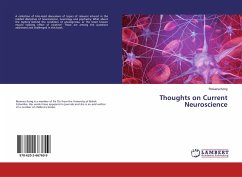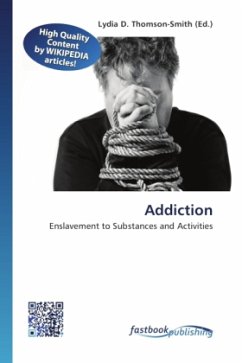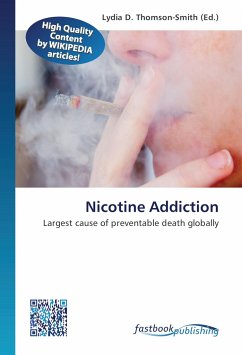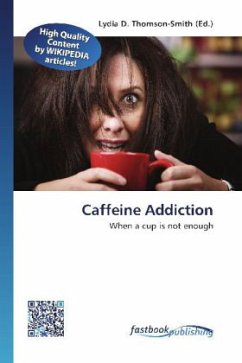
Caffeine Addiction
When a cup is not enough
Herausgegeben: Thomson-Smith, Lydia D.
Versandkostenfrei!
Versandfertig in 6-10 Tagen
26,99 €
inkl. MwSt.

PAYBACK Punkte
13 °P sammeln!
Please note that the content of this book primarily consists of articles available from Wikipedia or other free sources online. Caffeine is a commonplace CNS stimulant drug which occurs in nature as part of the coffee, tea and yerba mate plants. It is also an additive in many consumer products, most notably beverages advertised as energy drinks. Caffeine is also added to sodas such as Coca-Cola and Pepsi; on the ingredients listing, it is designated as a flavouring agent. Although caffeine's mechanism of action is somewhat different from that of many other addictive drugs, cocaine or the amphe...
Please note that the content of this book primarily consists of articles available from Wikipedia or other free sources online. Caffeine is a commonplace CNS stimulant drug which occurs in nature as part of the coffee, tea and yerba mate plants. It is also an additive in many consumer products, most notably beverages advertised as energy drinks. Caffeine is also added to sodas such as Coca-Cola and Pepsi; on the ingredients listing, it is designated as a flavouring agent. Although caffeine's mechanism of action is somewhat different from that of many other addictive drugs, cocaine or the amphetamines, for example, it nonetheless creates a similar pattern of dependence. Taking over 300 mg of caffeine daily over a long period of time may overstimulate the nervous system and produce nervousness, a flushed face, muscle twitching, irregular and/or rapid heart beat (tachycardia), and rambling thoughts and speech. Learn more about caffeine addiction in the following pages.



